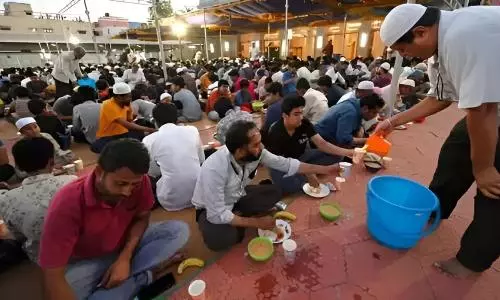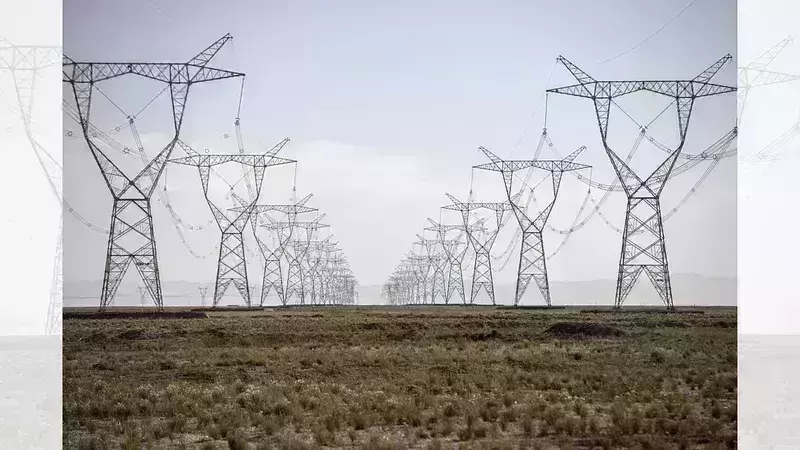
"Looming power crisis" blamed for 8-hour blackouts in India
text_fieldsBlackouts are spreading across parts of India due to a sweltering summer and acute coal shortages, raising concerns of a new power crisis that could roil Asia's third-largest economy.
Punjab and Uttar Pradesh in the north and Andhra Pradesh in the south have cut off electricity supply following a surge in demand. Customers have been forced to endure the heat or look for more expensive backup options.
Shailendra Dubey, chairman of All India Power Engineers Federation, an advocacy group, said that while outages in India aren't unusual, the situation this year indicates a "looming power crisis."
Coal shortages, which contribute 70 percent of India's electricity generation, are hampering the $2.7 trillion economy after a pandemic caused a record decline.
Inflation is also on the rise as officials try to contain rising energy prices sparked by Russia's war in Ukraine.
The cost of energy is rising among both small and large businesses in a tight market. According to Nomura Holdings Inc., the country will face another stagflationary shock due to a persistent shortage of coal.
"Both demand- and supply-side factors are responsible," economists led by Sonal Varma at the Japanese bank wrote in a research note on April 19. "Electricity demand has shot up, due to the reopening and as the country heads towards the peak summer season, but supply has been disrupted due to the reduced availability of railway rakes to transport coal and lower coal imports."
India wants to return to growth after its GDP shrank by 6.6% in the year through March 2021; however, headline inflation hit a 17-month high in March, above the central bank's target of 6%, posing a headwind.
The surge in demand is partly being driven by a recovering economy and rising industrial production, but the heat wave is also contributing.
Temperatures continue to swell across the country, prompting the weather department to issue heatwave warnings. New Delhi recorded its hottest day in five years on April 9 with 108.3 degrees Fahrenheit (42.4 degrees Celsius).The national average reached 92 degrees in March, the highest since records began in 1901.
Power outages have upended operations at some textile mills in the western and southern parts of the country because the high cost of cotton prohibits them from splurging on expensive diesel-powered generators and other alternatives, according to Atul Ganatra, president of the Cotton Association of India. That will reduce cotton consumption drastically, he said.
In Bihar, a car dealership and repair shop run by Atul Singh have suffered margin thinning due to frequent power cuts and diesel use. His firm spends more on diesel than electricity, he said.
Recent decreases in coal inventories at Indian power plants are largely the result of lower production at home, transportation constraints caused by the limited number of rail carriages, and reduced imports due to high sea freight rates.
As of April 18, electricity producers held coal stock that was expected to last just nine days on average, according to Power Ministry data. In spite of raising production by 27 per cent in the first half of this month, state-owned coal miner Coal India Ltd says it hasn't been able to keep up with "intense demand."
Summer coal crunches often occur due to a lack of capacity from Coal India and poor infrastructure, but when the pandemic cooled industrial output, capacity addition was further slowed.
Despite the reopening of the economy last year, the coal crisis returned. Import prices rose dramatically, putting more pressure on coal production. In September, stocks of coal at power plants fell to their lowest levels since 2017.























